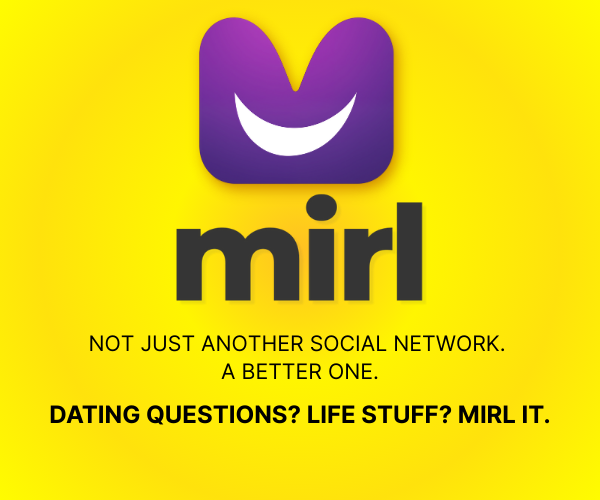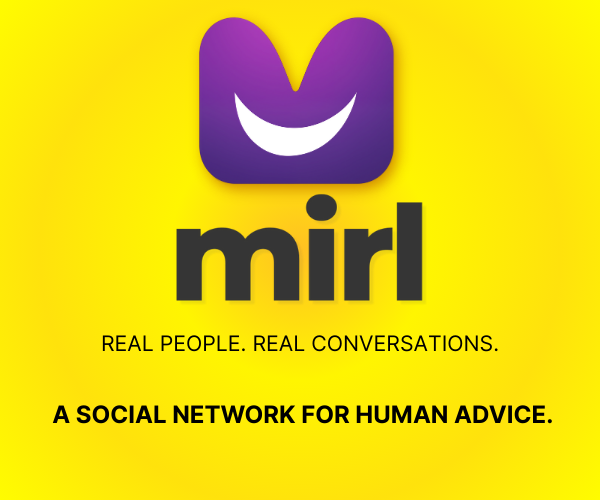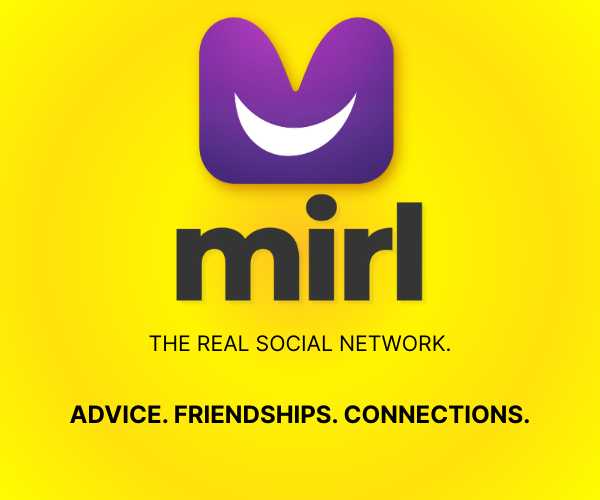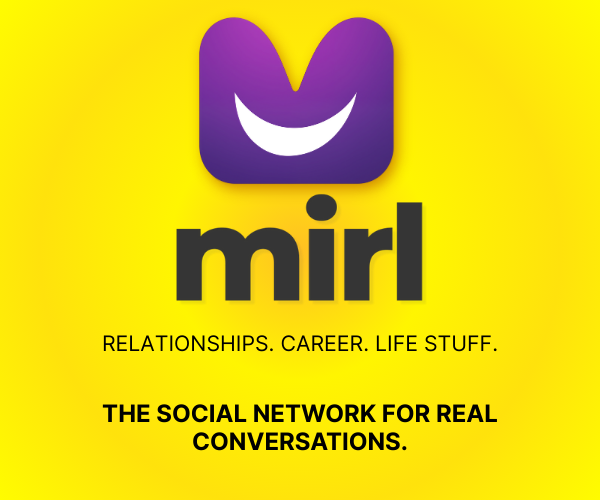Lying By Omission: What It Is, 30 Signs, Reasons & Why We Lie In Love

The truth isn’t always what’s said, sometimes, it’s what’s deliberately not said. Lying by omission can erode trust and love, all without a single obvious lie.
What is lying by omission really?
Let’s set the stage. You ask your partner what they did last night. They say, “I grabbed a bite and went home early.” What they don’t mention? They ran into their ex, had a drink, and talked for two hours. Did they lie? Technically, no. But emotionally? Oof. Big time.
Lying by omission is when someone leaves out key information to mislead, avoid conflict, or preserve a certain image. It’s not a bold-faced lie, it’s the invisible ink of deception.
Psychologists consider this a form of deception, often wrapped in intentions that range from protective to manipulative.
And the tricky part? It gives the liar plausible deniability, because they didn’t technically lie, right?
Classic Examples of Lying by Omission (Everyday Life & Relationships)
[Read: 20 Okayish White Lies & Things You Should NEVER Lie About on a First Date]
Omission isn’t just for dramatic soap operas. It’s sneakily common in everyday moments:
1. Not telling your partner about a flirty text you replied to.
2. Skipping the fact that your “catching up with a friend” was actually an ex.
3. Leaving out a purchase when discussing budgets.
4. Omitting an embarrassing detail during a job interview.
5. Not disclosing your relationship status on dating apps.
6. Failing to mention your past mistakes in a friendship fight.
7. Not revealing that you saw someone crying but didn’t ask why.
8. Avoiding talk about an STD with a new partner.
9. Leaving out how you really felt when something bothered you.
10. Ignoring your real intentions in a situationship.
[Read: Situationship: Why People Like It, 51 Signs, Rules & Ways to Tell If It’s For You]
It’s a shadow game, what’s not said can cast just as dark a cloud as a direct lie.
Why We Do It: The Deep Reasons People Lie by Omission
Let’s get psychological. Why don’t we just come clean? Why do we hide parts of the truth?
1. Fear of Conflict
Nobody enjoys a blowout argument or dramatic confrontation.
Many people omit the truth simply because they don’t want to “rock the boat.” It feels safer to keep things smooth, even if that smoothness is built on silence.
2. Shame or Guilt
Sometimes, the truth makes us feel small or exposed. If we feel ashamed of what we did or afraid it’ll change how someone sees us, we might convince ourselves it’s better left unsaid. That unspoken guilt simmers beneath the surface.
3. Fear of Rejection
We want to be liked, loved, and accepted. If a certain detail might make someone see us differently, or worse, leave us, we tend to withhold it. This fear can make honesty feel like a huge risk.
[Read: Fear of Rejection: 56 Signs, Causes & Ways to Overcome and Get Over It]
📚 Source: Baumeister, R. F., & Leary, M. R. (1995). The need to belong
4. Self-Protection
Omitting the truth can feel like armor. When we’re not sure how others will react, we go into protection mode and choose safety over transparency. It’s a defense mechanism with deep roots in insecurity.
5. Protecting Others (or So We Think)
“I didn’t tell them because I didn’t want to hurt them.”
This excuse is common, and sometimes well-meaning, but it often masks a more self-serving motive. It’s less about them and more about avoiding our own discomfort.
6. Maintaining Control
When we control what information is shared, we control the story. People who struggle with vulnerability or unpredictability may omit truths to steer situations and maintain emotional leverage.
[Read: Controlling Relationship: 42 Signs & Ways to Love Without Bullying]
7. Avoiding Accountability
Let’s be real, if we don’t say it, we can pretend it didn’t happen. By leaving out key details, people dodge blame, guilt, or consequences. It’s the ultimate sneak move.
8. Poor Communication Skills
Not everyone knows how to express themselves clearly or openly. Some were never taught to be vulnerable, while others struggle with articulating uncomfortable truths. So they stay silent instead.
📚 Source: Wegner, D. M., & Pennebaker, J. W. (1993). Handbook of Mental Control.
9. Habitual Behavior
If someone grew up around secrecy or punishment for being honest, lying by omission might be second nature. It becomes a learned survival strategy.
10. Self-Deception
Sometimes we lie by omission not just to others, but to ourselves. We avoid certain truths because facing them would force us to change, or admit something we’re not ready to accept.
📚 Source: Trivers, R. (2000). The elements of a scientific theory of self-deception
📚 Source: Vrij, A. (2008). Detecting Lies and Deceit: Pitfalls and Opportunities
How to Spot Lying by Omission: The Sneaky Signs That Something’s Off
Some lies shout. Others whisper from the shadows, and that’s what lying by omission is.
If you often feel like you’re hearing half a story, or like something just isn’t adding up, these subtle signs could be the quiet trail of truth someone isn’t telling you.
1. Vague Answers That Don’t Quite Land
They give you answers, sure, but they’re all fog, no clarity. When you ask a question like “What did you do this weekend?” and the response is “Just chilled, nothing much,” that’s your cue.
If the conversation feels like chasing fog in a forest, something might be missing.
2. Suspiciously Detailed About the Boring Stuff
People who lie by omission often drown you in irrelevant details, like the color of the bar napkins or the playlist in the Uber.
It’s a sneaky trick to make you feel like they’re being honest while skipping the juicy (and likely important) part. [Read: 12 Types of Liars, 15 Types of Lies They Often Use & Ways to Deal with Them]
3. “Let’s Not Talk About That Right Now” Energy
They switch the topic with Olympic-level finesse. Ask something a little personal or sensitive and suddenly, they’re passionately discussing what to eat for dinner. Evasion is a classic omission technique.
4. Their Stories Have Gaps You Can Drive a Truck Through
You start connecting dots, and they don’t quite form a picture. Details change. Timelines wobble. Or suddenly, an entire part of the evening goes unmentioned. If their memory has selective amnesia, beware.
5. Their Body Says More Than Their Mouth
Microexpressions don’t lie. If they’re fidgeting, avoiding eye contact, or suddenly very still and stiff, it could be because they know what they’re saying isn’t the whole story.
📚 Source: Ekman, P. (2009). Telling Lies: Clues to Deceit in the Marketplace, Politics, and Marriage.
6. They’re Emotionally MIA
If they seem weirdly detached or distant when discussing something you feel should matter emotionally, it may be because they’re holding something back. Emotional absence can be a symptom of cognitive dissonance.
7. They Get Defensive Out of Nowhere
You ask a simple question and suddenly they act like you’ve accused them of murder. Over-the-top defensiveness can mask hidden guilt or fear of exposure.
8. You Only Learn the Truth by Accident
They didn’t lie to you… you just happened to find out when someone else mentioned it.
People who lie by omission rarely volunteer key information, they wait until it leaks, then claim they were going to tell you “eventually.”
[Read: Compulsive Liar: Why They Lie, 22 Signs and Ways to Spot Them & Walk Away]
9. The Classic “Oops, I Forgot” Excuse
They forget to mention that they saw their ex, that a colleague confessed feelings, or that they made a big decision. But they remembered to tell you the waiter messed up their coffee order. Selective memory is a red flag.
10. Your Gut Is Screaming, “Something’s Missing”
Trust your intuition. Your brain processes tiny behavioral cues even if your conscious mind hasn’t caught up yet. If something feels off, it often is, especially in matters of the heart.
📚 Source: Porter, S., & ten Brinke, L. (2010). The truth about lies
How to Stop and Repair the Damage: The Healing Steps
Whether you’ve been the one omitting the truth or you’re on the receiving end of someone else’s silence, there’s hope for healing, and it starts with honesty that’s a little less filtered, and a lot more real.
1. Commit to Real Transparency
Stop tiptoeing around the truth. Make a pact with yourself (and your partner) to say the things that make you squirm. If it feels uncomfortable to admit, that’s usually a sign it needs to be said.
[Read: 42 Reasons, Types, Signs & Steps to Stop Lying to Yourself & Everyone Else]
2. Acknowledge the Omissions
If you’ve withheld something, own it. Say it out loud. “I didn’t tell you because I was scared”, that’s already a bridge back to connection.
3. Unpack Your Motives
Ask yourself, “Why did I omit this?” Whether it was fear, shame, or control, understanding the root helps you break the pattern.
📚 Source: Tangney, J. P., Stuewig, J., & Mashek, D. J. (2007). Moral emotions and moral behavior.
4. Start Small and Practice
Begin by being more transparent in low-stakes situations. It builds your confidence muscle for truth-telling in deeper, more vulnerable moments.
5. Invite Open Dialogue
Create a space where both of you can be honest without fear of judgment. Ask questions like, “Is there anything you’ve been holding back because you were scared to tell me?”
6. Learn to Sit With Discomfort
Honesty might sting in the short term, but it’s a million times better than slow-drip betrayal. You’ll both grow more resilient by staying present through the tough talks.
7. Repair With More Than Words
An apology is just the first step. Show with consistent, open communication that you’re willing to be fully honest going forward.
8. Work Through Deeper Issues
If omission is a chronic habit, therapy can help unpack old wounds or attachment styles that fuel the behavior. [Read: Attachment Styles Theory: 4 Types and 19 Signs & Ways You Attach To Others]
📚 Source: Bowlby, J. (1988). A Secure Base: Parent-Child Attachment and Healthy Human Development.
9. Give the Benefit of the Doubt, but Stay Smart
People mess up. If someone’s truly trying to change, look for progress, not perfection. But if omission becomes a pattern, don’t ignore it.
10. Define What “Full Honesty” Means to You
Set your relationship ground rules. Does honesty mean telling everything, even the small things? Or only the things that affect the other person? Define your shared standard.
Is It Ever Okay? The White Lie Debate
Let’s be honest, life would be exhausting if we said every single thing we were thinking. “No, I don’t love your haircut.” “Yes, I am bored out of my mind.” “Actually, your lasagna tastes like dish sponge.” So we omit. We soften. We sidestep. But when does that cross the line?
White lies by omission exist in a moral gray zone, and where they fall depends on intention, impact, and context. [Read: 20 Okayish White Lies & Things You Should NEVER Lie About on a First Date]
1. When It’s About Social Grace, Not Self-Protection
Saying “I’m fine” when you’re mildly annoyed, or “that was a great story” to your boss, even if it wasn’t, might fall under acceptable omissions. These are minor social lubricants, not structural dishonesty.
2. When the Truth Would Cause Unnecessary Hurt
If revealing something would serve no purpose except to wound, leaving it out might be the kinder path. But ask yourself: Is this about protecting them, or protecting me from their reaction?
3. If It’s Repeated, It’s No Longer Harmless
Omitting something once might be forgivable. Doing it again and again, especially about the same subject, suggests a pattern of manipulation, not mercy.
4. When the Other Person Deserves Full Truth
Big decisions? Emotional stakes? If someone’s going to make a choice based on your omission, you owe them the whole truth. Lying by omission in those cases is a form of control.
5. Check Your Intentions
Are you leaving it out to avoid guilt? To protect your image? Or because it genuinely has no impact on the other person? Be brutally honest with yourself.
📚 Source: Bok, S. (1978). Lying: Moral Choice in Public and Private Life.
6. Gut-Check the Aftermath
If your omission leaves you feeling guilty, anxious, or worried about being found out, you’re not being honest. The body knows when you’re out of alignment.
7. Think of the Trust Bank
Every omission either deposits or withdraws from the trust bank. Some cost nothing. Others overdraft your emotional account. Don’t gamble your relationships for convenience.
8. The Impact Test
Would the other person feel deceived if they found out? That’s the simplest litmus test. If the answer’s yes, it’s not a white lie. It’s just a quiet betrayal.
9. When It Serves Peace Over Truth
Sometimes, yes, omitting a harsh opinion or sugar-coating a truth in delicate situations keeps the peace. But peace without honesty isn’t peace, it’s performance.
[Read: 18 Foundations of a Relationship that Separate the Good & the Bad]
10. Mutual Agreement Matters
In close relationships, setting mutual expectations around honesty can help avoid future betrayal. What’s a white lie to one person may be a dealbreaker to another.
Bottom line: not all omissions are evil, but they’re never truly neutral. When in doubt, choose honesty with heart. That’s the kind of truth that strengthens, not severs.
📚 Source: Levine, T. R. (2022). Duped: Truth-Default Theory and the Social Science of Lying and Deception.
Deeper Dive: Paltering, Biases, and Brain Games
Lying by omission isn’t alone, it’s part of a whole family of psychological trickery that quietly bends the truth. Welcome to the brain gym of deception.
1. Paltering: The Cousin of Omission
Paltering is when someone tells technically true statements with the intent to deceive. It’s like saying, “I was at the bar,” without saying who you were with or what went down. Omission by technicality.
2. Omission Bias: We Judge Acts More Harshly Than Omissions
We tend to see direct harm as worse than passive harm. So if someone withholds something harmful, we (wrongly) view it as less serious than if they actively lied.
3. Cognitive Dissonance: Comfort in Self-Deception
The brain hates holding two conflicting beliefs. So we justify our omissions to protect our ego, reducing the tension between “I’m a good person” and “I lied.”
📚 Source: Festinger, L. (1957). A Theory of Cognitive Dissonance.
4. The Truth Default
Humans are wired to believe what others say unless we have a reason not to. That’s why lying by omission works so well, people assume honesty by default.
📚 Source: Levine, T. R. (2020). Duped: Truth-Default Theory.
5. Self-Serving Bias
We give ourselves a moral hall pass for omissions while judging others harshly for similar actions. Our brain protects our self-image even at the cost of someone else’s trust.
6. The Illusion of Transparency
We overestimate how obvious our feelings and intentions are. So we assume the other person must know we’re holding back, and when they don’t, it feels like their fault.
7. The Ostrich Effect
We avoid information or truths that might force us to act. Like an ostrich, we stick our heads in the sand, pretending it’s not real if we don’t say it out loud.
8. Availability Heuristic
If an omission hasn’t caused a problem before, we think it won’t now. We rely on past outcomes to judge future risk, even when emotions are at stake.
9. The Slippery Slope Effect
One small omission makes the next one easier. Over time, people become desensitized to their own deception.
10. The Emotional Numbing Effect
When someone omits repeatedly, it starts to feel less wrong. Emotional responses fade with repetition, making it easier to lie again without remorse.
Bottom line? The mind has clever ways to justify omission, but understanding these tricks helps you spot (and stop) the lies you tell others, and yourself.
Final Take: Say It, Even When It’s Hard
At its heart, lying by omission is about fear, fear of judgment, fear of conflict, fear of rejection, fear of not being enough. It’s a survival reflex. But here’s the thing: what protects you in the moment often poisons the relationship over time.
[Read: Fear of Rejection: 56 Signs, Causes & Ways to Overcome and Get Over It]
The truth, especially the uncomfortable kind, is a gift. Not because it’s easy to give, but because it invites real connection.
When we tell the truth, we invite the other person into our inner world. We let them see us, not just the polished parts, but the messy, complex, vulnerable pieces too. And that’s where intimacy lives.
So say it. Even if it makes your palms sweat. Even if it risks shaking the ground a little. If it’s said with care and honesty, the truth has the power to build, not break.
When people feel you trust them with the truth, they trust you back with their own.
And if you’re on the receiving end? Trust that your gut knows when something is missing. Ask questions not to accuse, but to understand.
You’re not too sensitive or overthinking. You’re responding to a real emotional cue.
[Read: Loyalty in a Relationship: What It Is, 49 Traits & Secrets to Be Loyal in Love]
Lying by omission may seem like a soft kind of dishonesty, but it stings just as deeply. So choose the truth. Choose wholeness over half-truths. Because when you speak with honesty and heart, you give your relationship the best chance to be real, resilient, and lasting.



















